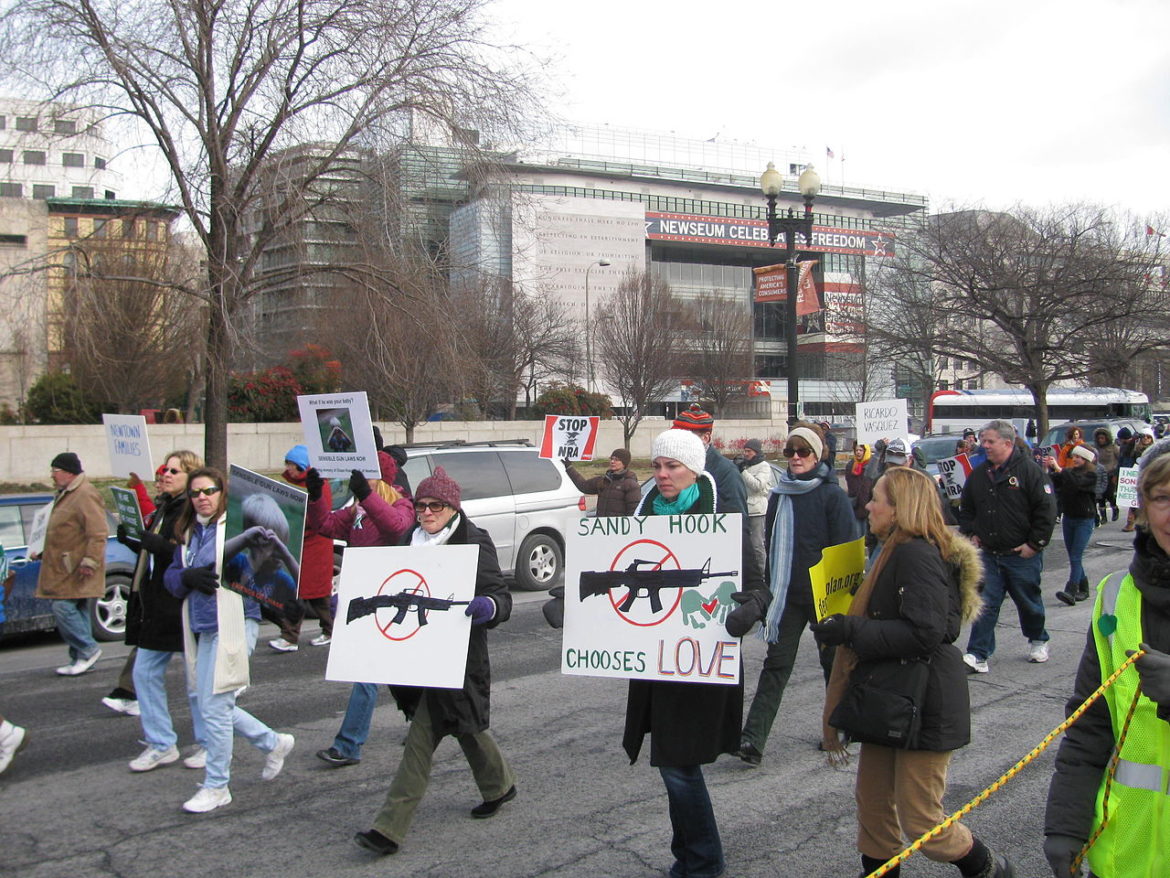A radical proposal would go well beyond controlling the most aggressive semi-automatic rifles and curbing arms sales to the world’s worst dictatorships. It would also demand a change in our political system.
Published in the March 2013 issue of the New Internationalist.
There are some 239 million people in the United States between the ages of 15 and 84. There are an estimated 275 million firearms. That means that you could theoretically arm every able-bodied adult in America and still have a sizable arsenal left for use by the Raging Grannies and by local pre-teen gun enthusiasts.
Lately, even the US Congress has recognized that this raises some concerns.
It wasn’t the tragedy last July, when a gunman killed 12 people and injured 58 in a Colorado movie theater, that moved them. Nor was it the shooting in early December of three people by a man in hockey mask in the food court of an Oregon shopping mall. But when, just days later, a gunman murdered 20 children and six adults in a Newtown, Connecticut, elementary school, public outcry became too much for even practiced denialists to ignore.
Or maybe not. The White House has put forward a plan for stricter firearms controls. By the time you read this, it’s possible that the House of Representatives will be considering legislation. The proposed restrictions will be pathetically weak relative to measures in the UK, Germany, Japan, and Australia. They will meet with enraged opposition from a well-financed gun lobby led by the National Rifle Association (NRA). And they will probably fail.
I hope I’m wrong. But given the confines of the present debate, a best-case outcome would be a return to 2004. Back then the U.S. had a federal ban on assault weapons (it has since expired) and the main regulatory agency for guns, the Bureau of Alcohol, Tobacco, Firearms and Explosives, actually had a full-time director (for the past six years, conservatives have refused to approve one).
Unfortunately, America still had a gun problem in 2004.
The loophole-ridden assault weapons ban was only a start, and the Columbine High School massacre, among others, took place while it was in effect. Most state-level regulations on firearm use have only grown less restrictive since.
It’s also worth noting that America’s gun problem is not merely a domestic one.
Some cynics have viewed the White House’s post-Newtown effort to reign in guns as hypocritical. “What about the kids killed by US drone strikes in Afghanistan?” they ask. This attitude is too smug. It is fair to point out, however, that America’s military contractors have worked tirelessly to peddle deadly arms internationally.
In 2011, US weapons exports jumped to a record $66.3 billion, accounting for 78 percent of the global market. To paraphrase a colleague, America is NRA to the world. It has consistently worked to weaken the text of a global Arms Trade Treaty, which would curtail weapons shipments to regimes committing crimes against humanity.
In addition to fueling arms races in the Middle East and Pacific Rim, US military exports create a vicious circle domestically. Weapons dealers, aided by the lawmakers who rake in their campaign contributions, push for ever-expanding budgets for the Pentagon on the grounds that the US must keep its edge over other increasingly well-outfitted countries—nations they themselves armed.
When it comes to guns in the possession of individual Americans, it’s not corporate power alone that keeps the cycle of violence churning. There are legions of bona fide gun nuts for whom the Constitution’s promise of a “well regulated militia” somehow translates into a personal duty to stockpile military-grade munitions in their basements. Yet gun makers have indeed provided generous funding to the NRA.
A radical proposal would go well beyond controlling the most aggressive semi-automatic rifles and curbing arms sales to the world’s worst dictatorships. It would also demand a change in our political system, banning weapons dealers from using their profits to purchase Congressional patrons and pervert public debate.
How many massacres more, in the US and abroad, before the radical proposal becomes the commonsense one?
